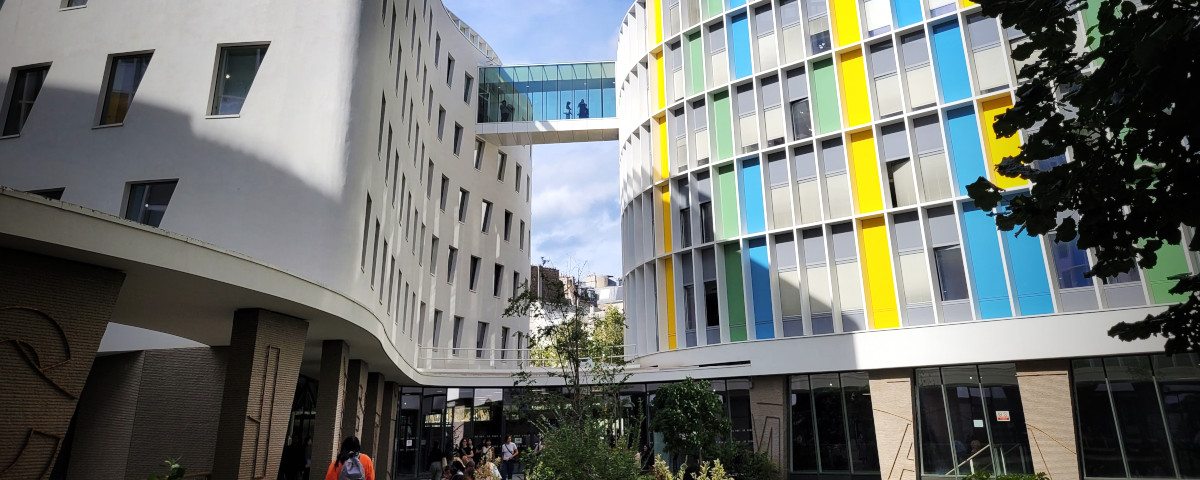Master in Transnational Journalism | 14.05.2019
Burning for the European idea
What sounds better than studying journalism in Mainz? Exactly, learning the journalistic craft in Mainz AND in Paris at the prestigious Sorbonne. This is made possible by the new German-French Master’s program of the School of Journalism at JGU. A few days ago, the first class started their studies. At the start of the semester, Katja Schupp, professor of television journalism at the School of Journalism, once again answers all the important questions about applying and studying. Questions: David Kost
What can I expect as a student when I apply for the Franco-German Master’s at the School of Journalism?
Katja Schupp: “In this form, the German-French master’s program is a unique training opportunity in Germany for young people who are interested in journalism and want to look beyond the German horizon: Sound journalistic craft goes hand in hand with theoretical reflection on transnational contexts and practical hands-on training. The whole thing is also supported by the enthusiasm of those who conceived and developed the program: We are on fire for the European idea and would like to see more journalists who can shed light on and describe this idea in a competent and well-founded way, and critically engage with it.”
What are the advantages of the Franco-German master’s degree at the Journalism Seminar in Mainz compared to a traineeship or training at another journalism school?
Katja Schupp: “There are lots of advantages: It’s bilingual, it takes place in Mainz and Paris and students spend time in both cities, it networks German and French students already during their studies and builds teams for life - and that’s in addition to a practice-oriented education across all media, print, online, radio and audiovisual, based on a scientific-theoretical concept that understands journalism as an essential part of a democratic society and trains for it in a contemporary way.”
What do applicants have to be prepared for during the two-day aptitude test in Mainz?
Katja Schupp: “The aptitude test asks for general knowledge with a focus on Germany and France, the students have to deal with both German and French-language texts and write in both languages themselves - and we take the time to get to know them in a personal interview. That’s how knowledge and journalistic aptitude are tested.”
The transnational Master’s programme is bilingual, takes place in Mainz and Paris and links German and French students during their studies.
Half of your studies will be completed in Mainz and half in Paris. What does the time allocation look like in concrete terms here? And is there any support for students in finding accommodation in France?
Katja Schupp: “What is special about the program is the networking and connection of the two courses: all 12 students of the Master Transnational Journalism will start together at the partner University Sorbonne Nouvelle and transfer to the Journalism Department in Mainz after the first academic year. And of course: students can take advantage of financial aid through the Franco-German University and through Erasmus. When it comes to finding housing, we also hope for a growing network effect.”
How good does my French need to be in order to apply for the French-German Master?
Katja Schupp: “Applicants must demonstrate at least level B2 in German, French and English.”
German-French Master